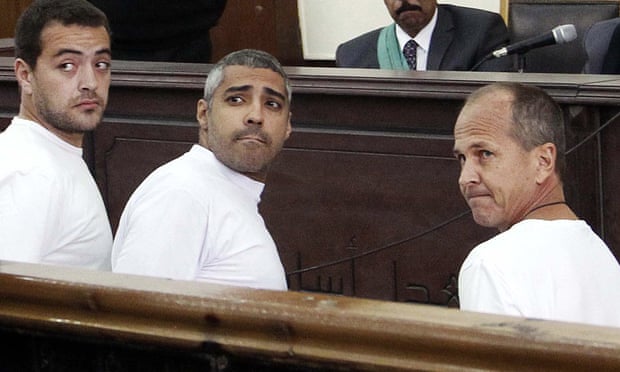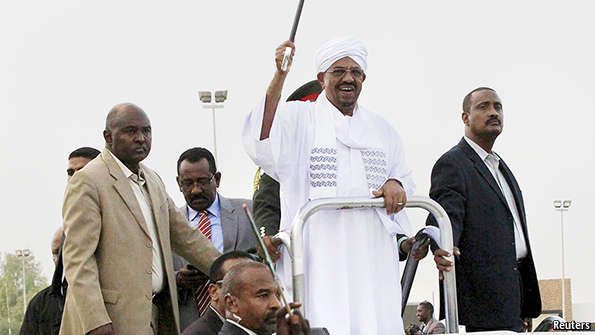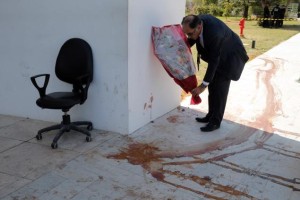By: Tyler Campbell
Impunity Watch Reporter, Africa
CAIRO, Egypt – –
On Saturday an Egyptian judge sentenced three Al-Jazeera English reporters to three years in prison. The three men, Mohamed Fahmy, Baher Mohamed and Peter Greste appealed this ruling and spent 400 days in jail until released on bail by Egypt’s highest court in January, when it granted them a retrial. This case has some important international connections. Mohamed Fahmy is a Canadian national and Peter Greste is an Australian journalist so any ruling by an Egyptian court could seriously affect the men’s abilities to continue as international journalists.
The three men on trial. (Photo courtesy of The Hindu)
Media and civil right groups around the world are loudly criticizing the verdict as baseless and politically motivated by the current Egyptian regime. This is the same regime that took power two years ago when the military removed president Mohamed Morsi from office. Since the regime change the climate for journalist in Egypt has steadily become more unfavorable. Last Saturday when the Judge read the sentences, the original charge of collusion with a terrorist organization was not present. Instead they are being imprisoned for operating without a broadcast license and broadcasting false news with the intentions of harming Egypt. The journalists stand by that they were just doing their jobs and are now being prosecuted for it by current Egyptian leadership.
The lack of evidence, and the nature of said evidence provided by the prosecution seems to give some credence to the idea that the ruling was politically motivated. For instance one of the pieces of evidence offered by the prosecution was the music video of “Somebody that I used to Know” by Gote. Not only are civil rights groups questioning the ruling but governments around the world have expressed concern. The U.S. State Department said it was “deeply disappointed” with the court’s ruling. State Department spokesman John Kirby said, “The freedom of the press to investigate, report, and comment even when its perspective is unpopular or disputed is fundamental to any free society and essential to democratic development.” The Australian government has also pledged its support to Greste. Foreign Minister Julie Bishop said she would “continue to pursue all diplomatic avenues with my Egyptian counterpart to clear Greste’s name.” The ruling is rather troubling for the state of media rights in Egypt. It looks like they have traded one oppressive regime for another. How the current President Abdel Fattah el-Sissi will handle these calls for action by the world remains to be seen.
For more information, please see:
The Guardian — Al-Jazeera journalists sentenced to three years in prison by Egyptian court—
CNN —Egyptian court sentences 3 Al Jazeera journalists to prison—30 August 2015
Al Jazzeera–FAQ: Al Jazeera’s journalists on trial in Egypt—29 August 2015
The Hindu—Egypt sentences 3 Al-Jazeera reporters to 3 years in prison—29 August 2015



